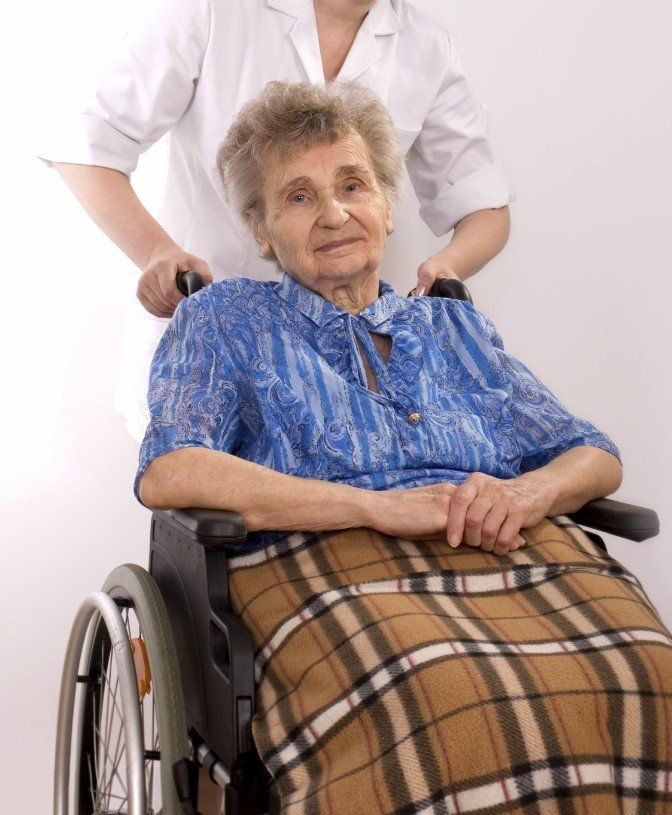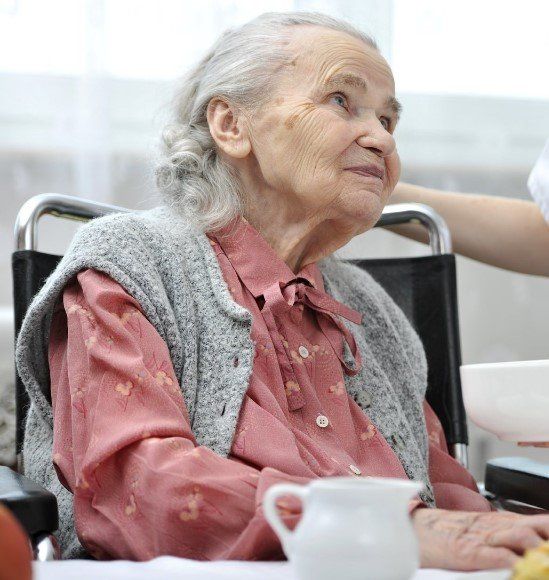dementia care
Entitled persons § 45a SGB XI
After having been assessed by the MDK (Medical Service of the Health Insurance Funds), persons in need of nursing care I to III and persons who are in need of basic care and home care but do not yet meet the requirements of Care Level I are entitled to additional childcare. This applies, among other things, to people who suffer from dementia, mental disability or mental illness, which severely restricts their ability to carry out daily tasks.
For the assessment, whether the restriction of the everyday competence in the long term is substantial, the following damages and ability disturbances are decisive:
uncontrolled leaving the living area (tendency to run away)
To misunderstand or cause hazardous situations
improper handling of dangerous objects or potentially hazardous substances
verbally or verbally aggressive behavior in misjudging the situation
inappropriate behavior in the situational context
Inability to perceive one's own physical and emotional feelings or needs
Inability to cooperate in therapeutic or protective measures as a result of therapy-resistant depression or anxiety disorder
Disorders of higher brain functions (impaired memory, reduced judgment), which have led to problems in coping with everyday social services
Disruption of the day / night rhythm
Inability to independently plan and structure the daily routine
Misunderstanding of everyday situations and inadequate reactions in everyday situations
pronounced labile or uncontrolled emotional behavior
predominantly depression, despondency, helplessness or hopelessness due to therapy-resistant depression
Everyday competence is considerably limited if the assessor of the medical service or the appraiser commissioned by the nursing care insurance determine long-term and regular damage or impairments of ability in at least two areas of which at least once from one of the areas 1 to 9
Additional care services acc. § 45 b SGB XI
The law of long-term care insurance has newly regulated the entitlement to the so-called additional care benefits with the entry into force of the Long-term Care Nursing Act from 1 July 2008. These care services have been created for people in need of care with and without care, who are considerably limited in their everyday skills.
Insured persons who fulfill the requirements of § 45a may, depending on the extent of the considerable general need for care, make use of additional care and relief services. The costs for this will be covered, but not more than 104 euros per month (basic amount) or 208 euros per month (increased amount). The amount of the respective claim is determined by the care fund on the recommendation of the Medical Service of the Health Insurance in individual cases and communicated to the insured. The amount is earmarked for quality-assured services of care or relief. It serves the reimbursement of expenses incurred by the insured in connection with the use of benefits of the nursing service.
from 01.01.2015 People in
need of care who do not fulfill the requirements of § 45a can also claim additional care and support services. The costs for this are taken up to an amount of 104 euros per month.
New as of 01/01/2017
The so-called relief amount for additional care services amounting to 104,00 Euro or 208,00 Euro will be standardized and from 2017 onwards a flat rate of 125,00 Euro. If the person in need of care does not receive the same benefits at least in total after the transfer of care levels 2016 into care levels 2017, the grandfathering takes effect: The care fund then pays the difference.
Services
In addition to basic care and home care services, the beneficiaries receive an additional care allowance of € 1,500 up to € 2,496 per year for care services. The required benefit is provided in 2 stages (level 1: € 1,500, level 2: € 2,496) according to the amount of care that has been identified. This usually coincides with the levels of care, as the severity of the disease increases the need for additional services. The benefit can be claimed within the respective calendar year; If the service is not used up in one calendar year, the unused amount can be transferred to the following calendar year. This expires however on 30.06. of a calendar year.
To include the care services
Offers the general guidance & care of approved care services
the short term care
the day or night care
the low-threshold care services recognized under state law
Offers of home care and not basic care services
Benefits of the basic care, as well as additional services of the substitute care can not be subsidized. However, special counseling offers can be used.
Quality-assured care services through our nursing service
Coping with general nursing requirements of everyday life
Attendance at home visits (doctors, MDK, district court, social assistance agencies or other authorities / institutions
- Contact for appointment coordination
- Prepare the home visit and prepare necessary documents
- Presence at the home visit
- Postprocessing of the appointment
Help with application (care insurance)
- Advice on any benefits
- Request for application documents
- Assistance in completing the application
- Organization of necessary documents
- Assistance with the transmission
Presence and organization of hospital admissions
- Pack the bag
- Checking the apartment, switching off the electrical appliances, waste disposal, checking the refrigerator
- Information of the relatives
- calming impact on customer
- Receipt of the transport
- Handing over the necessary documents
- Complete the apartment
Organization and transfer at hospital layoffs
- Contact with hospital and customer / relatives to agree on the discharge date
- Contact with attending physicians
- Make necessary applications in advance
- Ventilating the apartment in advance, turning on the heating,
- Receiving the customer in domesticity / opening the door
- if necessary, shopping for food / drinks
- Handing over the discharge letter to family doctor
Correspondence with authorities
- Help with correspondence
- Telephone contact and correspondence
- Accompaniment to appointments
care-related errands
- Transport and delivery of required samples
- Submission of prescriptions / regulations
- Handing over hospital reports / test results to treating physicians
general errands
- key Copy
- Posting of letters / parcels
- Transmission of documents to the bank
Support in the household
Clean the household
- Cleaning the apartment
- Cellar and hallway cleaning
- House rule
- Clearing / bulky waste (no budget liquidation)
Care of indoor plants
- to water
- Fertilize
- trimming
- repotting
Supply of pets
- Feed
- Cleaning of the environment (cage, cat toilet)
- To run
- Accompaniment to the vet
small "janitorial activities"
- Change of light bulbs
- Connecting and adjusting electrical appliances
- Descaling of electrical appliances
- Hanging lamps / pictures / wardrobe
- Rausstellen of garbage cans
Care of the laundry and clothing
- Washing the laundry
- hanger
- Tidying the closet (winter / summer)
Organization of individually required assistance
Contacting other occupational groups involved in the care
- contact
- Determine the framework conditions and, if necessary, assist with filing applications / Obtaining regulations
- lead in advance required correspondence (joint), assistance in determining the medical history
- Presence at first visit
Organization of a home emergency call device
- Advice on the services
- Contacting the service provider
- Assistance with request for reimbursement
- Presence during installation
- Organization of a key
Obtaining care aids
- Advice on providers and articles of care aids
- Assistance with application
- Organization of delivery
Obtaining food on wheels
- Advice on providers and services
- Contact or correspondence with service provider
- Presence at first delivery
prescription Ready
- Contacting a doctor
- Order the recipe
- Pick up the recipes
- if necessary, redeem the recipe
Relief of caregiving relatives or similar related caregivers
Accompany outside the house
- shared visit with relatives / friends / acquaintances
- Accompaniment to the cemetery
- Accompaniment to the doctor / pedicurist / hairdresser
- Accompaniment to the service
- general walk
- Accompaniment to hobbies / sports events
backup call
- Call with customers at the agreed time of day for reinsurance and clarification of the condition
- Home visit at the agreed time of day
Help with care-related renovations of the apartment
- Advice on necessary conversion measures
- Contact the counseling center
- Assistance in the application for reimbursement, solicitation of cost estimates
- Presence in talks with counseling centers
- Presence when taking action
Help with required home admission
- joint visit of homes
- joint appointments with the institution in advance of a recording
- Help with application
support services
Supervision to relieve the burden of caring relatives
- pure presence and supervision in the case of a patient who is difficult or difficult to activate due to his illness
- Avoidance of dangerous situations in the absence of the caregiver
Training of everyday skills and day-structuring measures
- cooking meals together
- cooking together
- joint shopping
- together small activities in the house (dusting, rinsing, drying)
Guidance and support in taking meaningful occupations
- Needlework (sewing, knitting, crocheting, handicrafts)
- Gardening
- board games
- Baking, cooking, ...
Stimulating and supporting social contacts
- out-of-home company
- joint writing of letters
- joint telephone calls
relaxing activity to maintain and promote motor skills and social skills
- Balance and movement exercises
- Exercises for memory training
- Make music, paint
Conduct conversations, promote entertainment with the goal of activation
- Reading and reading from books, daily newspaper
- Memory exercises (watching pictures, singing songs)









